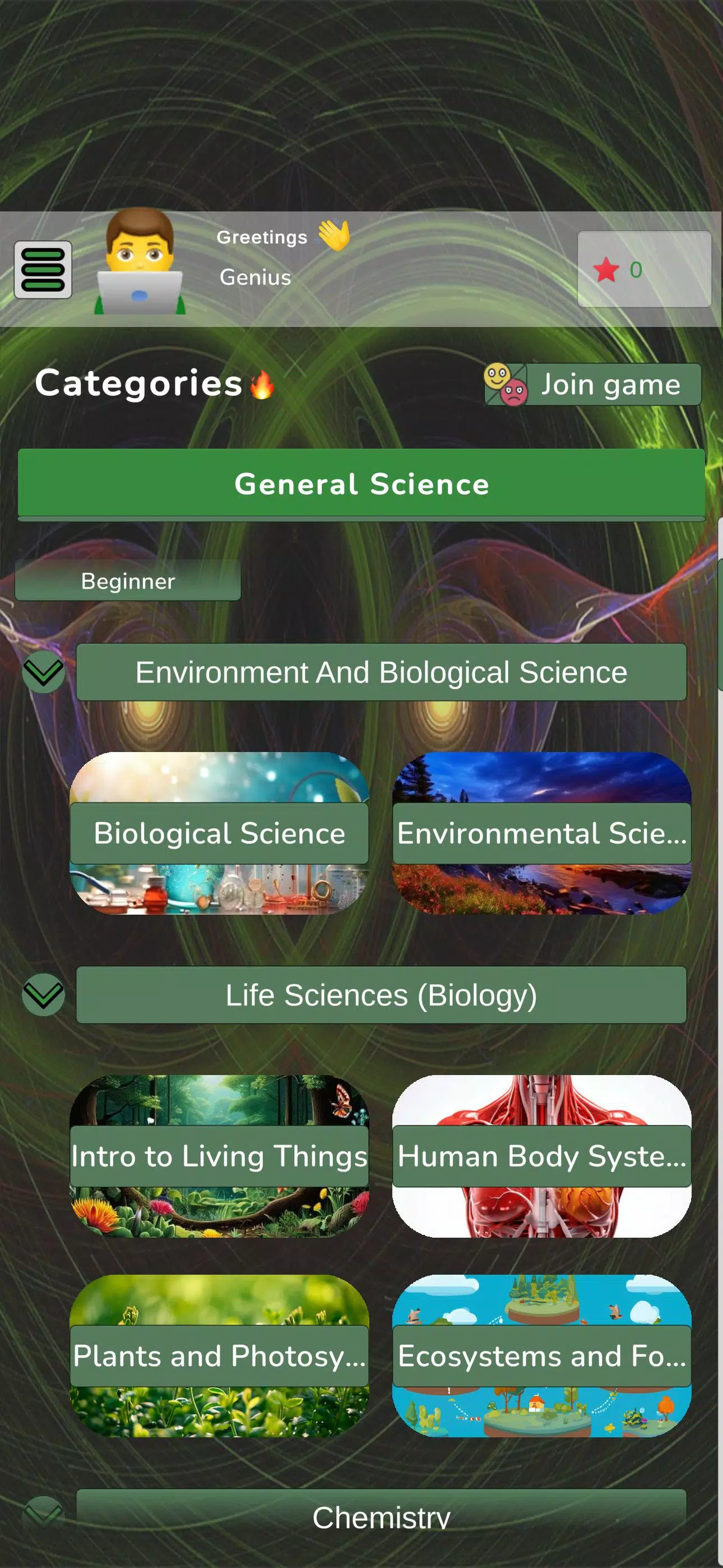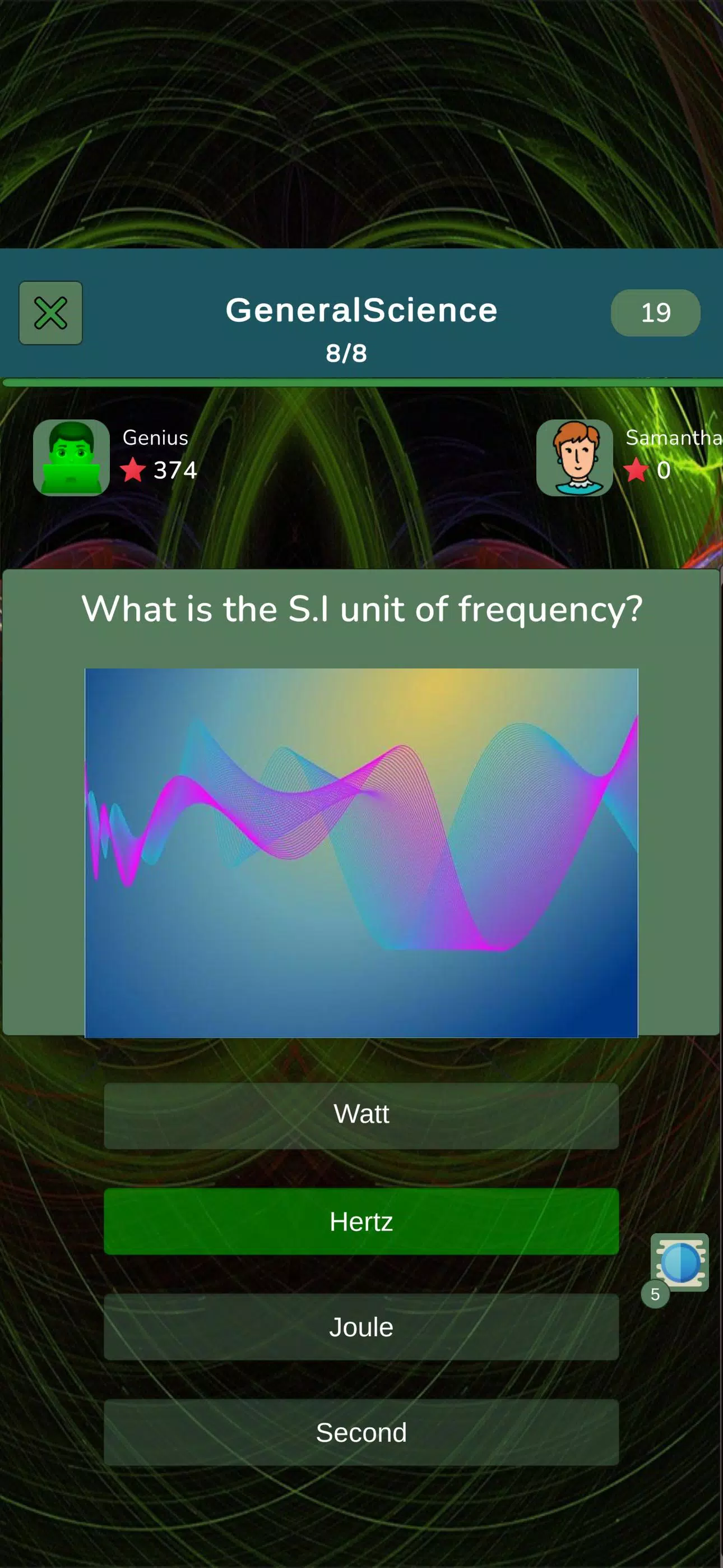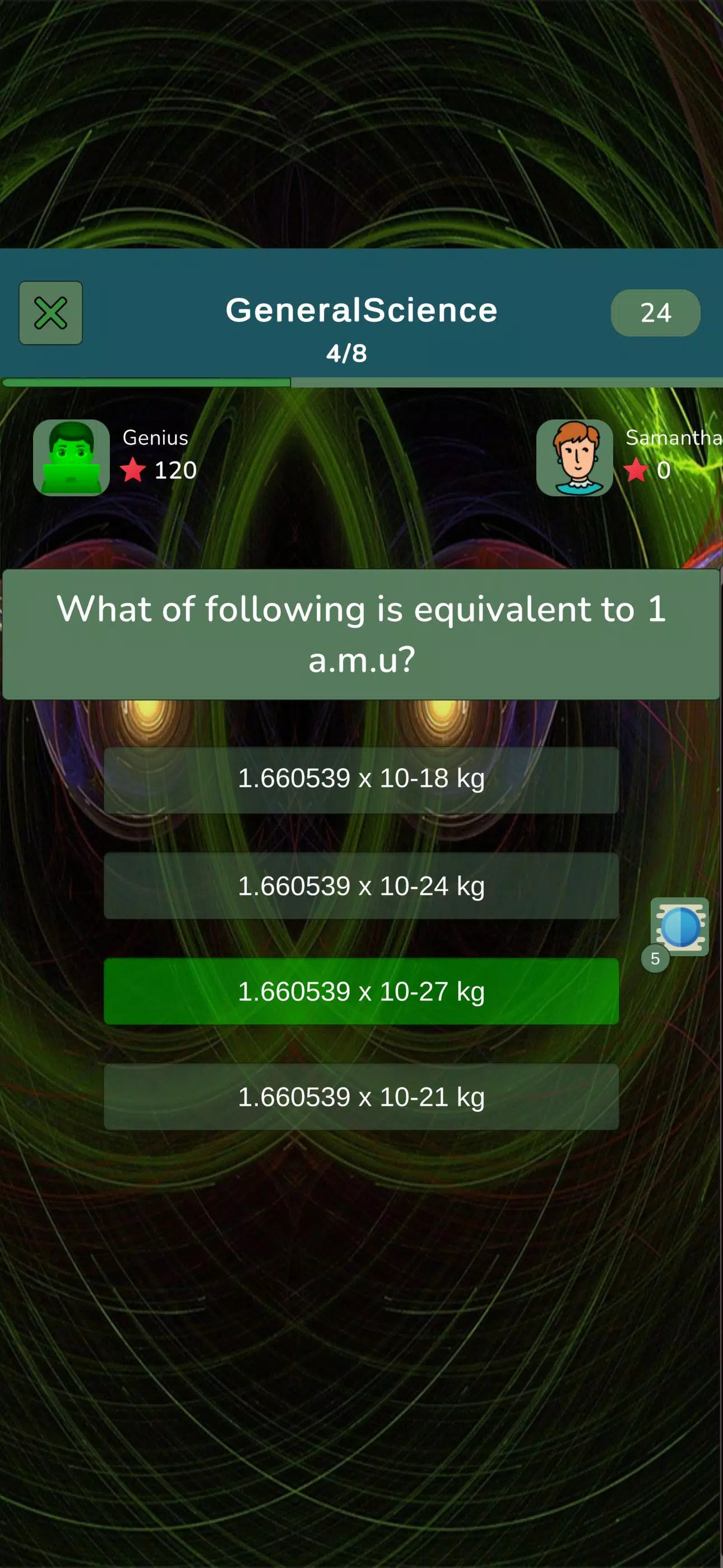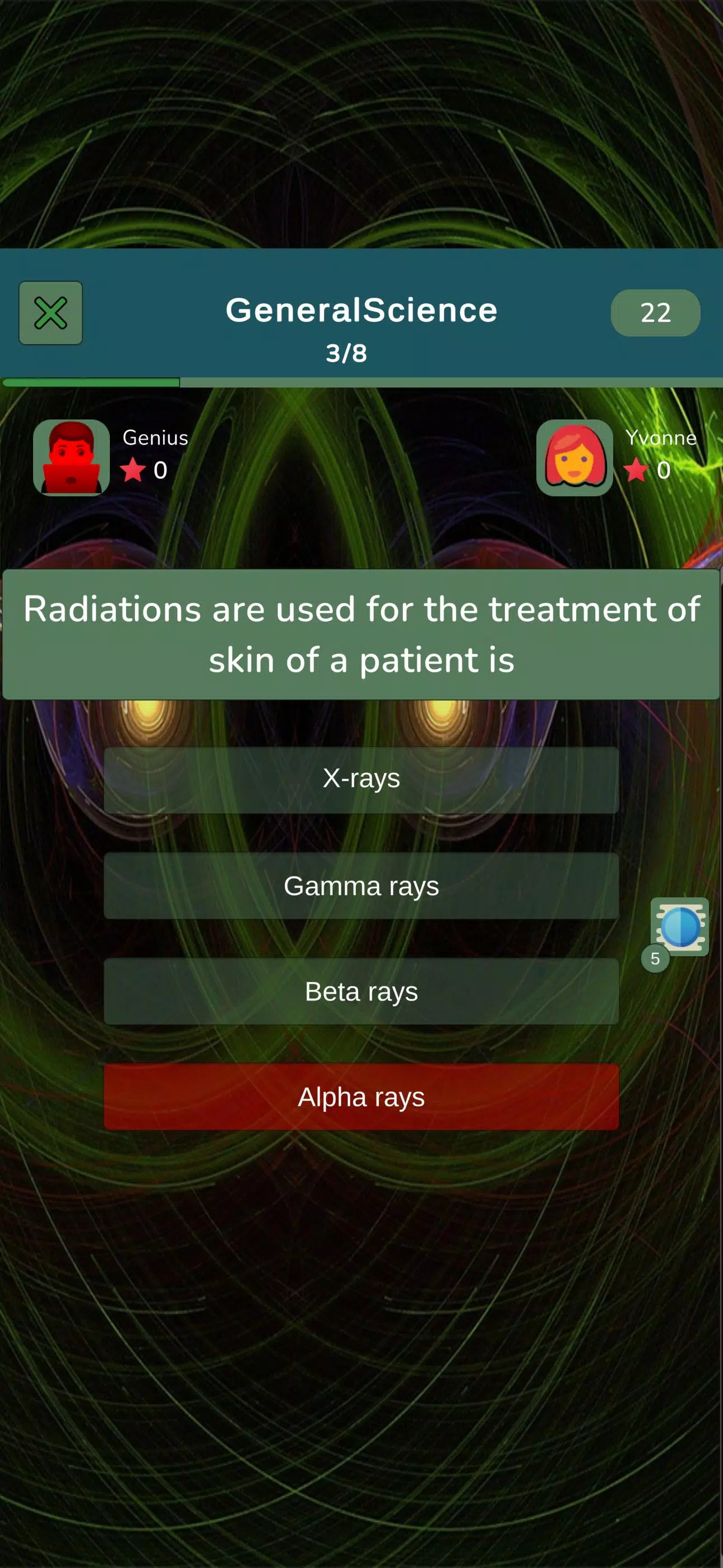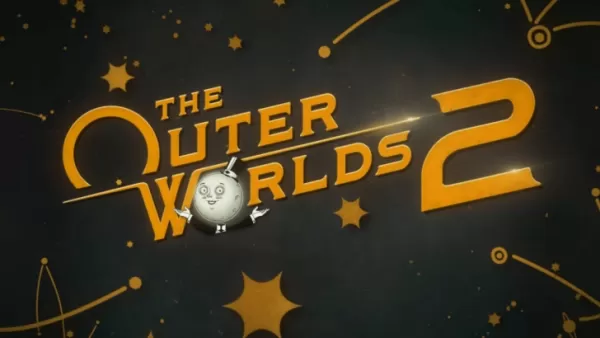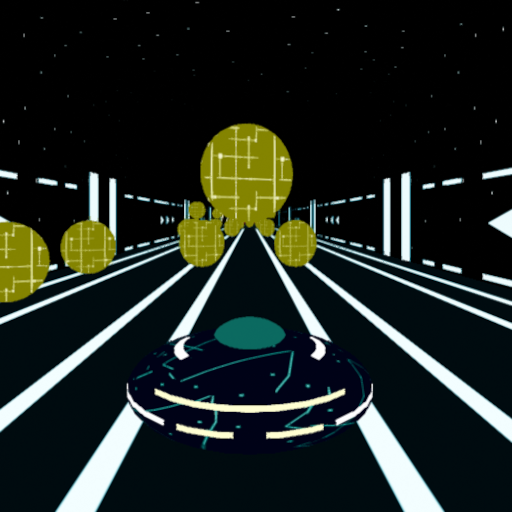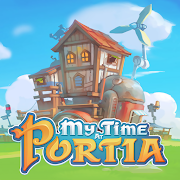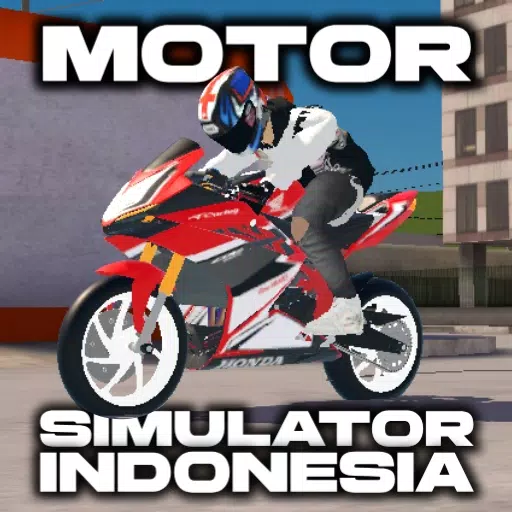Think you're a General Science whiz? Think again! Our app is specifically designed to gauge your General Science knowledge and challenge you to prove it. If you're up for a test, this app is perfect for you.
Our General Science game takes your quiz results and uses them to predict your General Science knowledge score, giving you a clear picture of just how much of a scientist you really are.
The General Science Knowledge Test is a fun and engaging app developed to test your understanding and thinking skills in General Science. It offers a comprehensive set of educational quizzes covering all branches of General Sciences, designed to assess your knowledge and dexterity in the field.
The app covers a wide range of topics across different scientific fields, ensuring a thorough evaluation of your General Science knowledge.
This General Science game is an excellent tool for sharpening your knowledge and senses. It's perfect for preparing for exams or tests in any branch of science and is designed to increase your overall scientific understanding. Suitable for all ages, even children can enjoy and enhance their General Science knowledge through our quizzes. The app is an ideal resource for preparing for school, college, and university quizzes, as well as entry tests.
Featuring cool functionalities like buttons that turn green for correct answers and red for incorrect ones, the app also offers multiplayer capabilities, allowing you to compete with players from around the world. With impressive graphics and minimal ads, the app runs efficiently on any device, ensuring a smooth user experience.
We've updated the app to include separate subcategories for different branches of science, moving beyond general science topics.
New features have been added to enhance your quiz experience:
- New graphics, music, and sounds to increase engagement.
- An option to compete against intelligent bots.
- Refined multiplayer support, allowing you to challenge friends and family.
- Additional categories, chapters, and subtopics beyond General Science.
Credits:

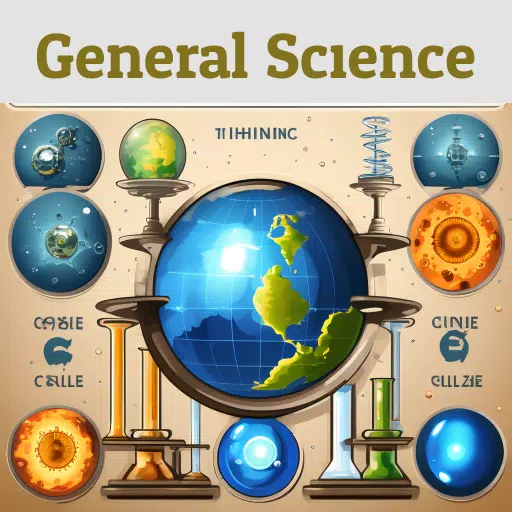
 Download
Download